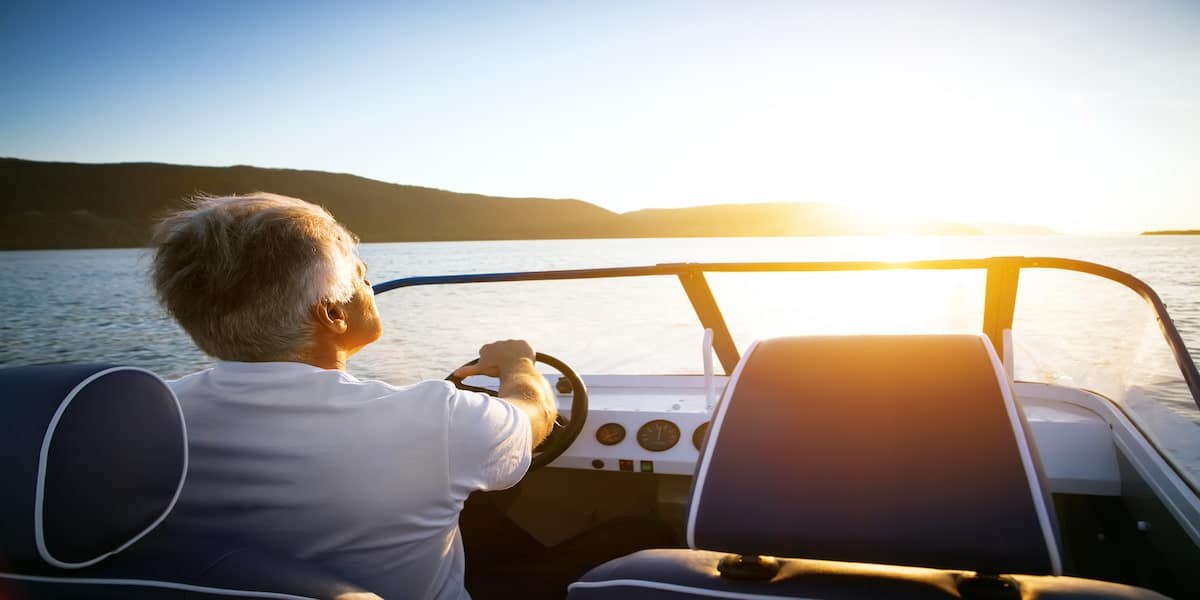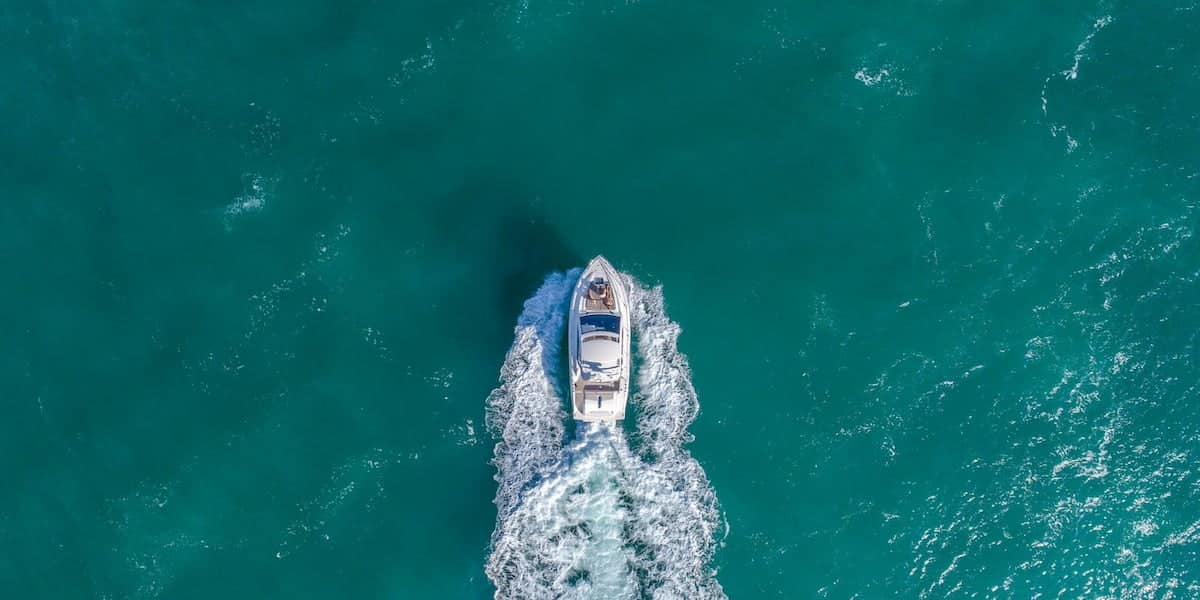
Boating accidents can happen quickly, and knowing how to respond is crucial. Whether it’s a minor crash or something more serious, the steps you take right after an accident can make a big difference. In this guide, we’ll answer the important question: What is the first action required of a boat operator who is involved in a boating accident? We’ll also cover when a boat operator is required to assist anyone injured in an accident. Understanding your responsibilities can help keep everyone safe and protect you from legal trouble.
Understanding Your Legal Duties as a Boat Operator
Boating is one of the most popular activities in Florida, known for its beautiful coastlines and sunny weather. However, being on the water comes with serious responsibilities. As a boat operator, it’s not just about enjoying your time on the water but also understanding what to do if something goes wrong. According to Florida law, if you’re involved in a boating accident, your actions in those first moments are critical. They can affect both the safety of everyone involved and your legal obligations.
So, what is the first action required of a boat operator who is involved in a boating accident? Let’s break down the key steps you need to take to ensure everyone’s safety and comply with the law.
What to Do Immediately After a Boating Accident
If you’re ever in a boating accident, it’s essential to act quickly but carefully. Here’s a detailed guide to help you respond correctly:
1. Stop Your Boat and Stay Calm
- The first thing you must do is stop your boat immediately. This prevents further collisions or accidents, especially if someone has fallen into the water.
- Turn off the engine to avoid propeller injuries and to stabilize your boat.
- Take a deep breath and stay calm. Panicking will only make it harder to think clearly and take the right steps.
Why do I need to stop the boat?
Stopping the boat ensures you don’t leave the scene and reduces the risk of additional damage or injury. Legally, failing to stop after an accident can lead to serious consequences, including fines or criminal charges.
2. Check for Injuries
- Once your boat is secure, the next step is to check for injuries among your passengers and yourself.
- If someone is injured, call for emergency medical assistance immediately. Use a marine radio or a cell phone if you have service.
- Provide first aid if you are trained and able to do so. Basic first aid could include stopping bleeding, helping someone who is struggling to breathe, or stabilizing a broken limb.
What if I don’t know first aid?
If you’re not trained in first aid, it’s best to wait for professionals. However, keeping the injured person calm and still until help arrives can make a big difference.
3. Help Anyone Who Needs It
- Florida law requires boat operators to assist anyone injured in the accident if it’s safe to do so. So, when is a boat operator required to assist anyone injured in an accident?
The answer is: whenever it doesn’t put you or others in danger. This includes:
- Pulling someone out of the water.
- Administering basic first aid.
- Transporting someone to shore if they need urgent medical help.
- If it’s too dangerous to help directly, the best course of action is to call for assistance. The safety of everyone on your boat should be your priority.
What if the accident involves another boat?
If another boat is involved, it’s your duty to check if their passengers need help too. Maritime law requires boaters to assist each other whenever possible.
4. Notify Authorities
- After ensuring everyone’s safety, the next step is to notify the authorities if necessary.
- You must report the accident if:
- Someone is seriously injured or killed.
- There is damage to boats or property over $2,000.
- Contact the Florida Fish and Wildlife Conservation Commission (FWC), local police, or the U.S. Coast Guard to report the incident.
- Reporting should be done as soon as possible, ideally within 24 hours.
Why do I need to report the accident?
Reporting helps authorities document the incident and investigate what happened. Failing to report can result in fines and legal trouble, especially if the accident involved injuries or fatalities.
5. Exchange Information
- Just like in a car accident, you need to exchange information with other parties involved.
- This includes:
- Names, addresses, and contact numbers.
- Boat registration numbers.
- Insurance details.
- Also, gather contact information from any witnesses. They can provide statements if there’s a dispute later.
What if the other party refuses to share their information?
If the other party is uncooperative, document whatever you can (such as their boat’s registration number) and report it to the authorities.
6. Document the Accident
- If it’s safe to do so, take photos of the scene to document what happened.
- Include pictures of:
- Damage to boats and property.
- Injuries sustained.
- Weather conditions, water conditions, and visibility.
- Write down the sequence of events while it’s fresh in your mind. This documentation can be useful if there are legal proceedings later.
Why should I document the scene?
Evidence from the scene can protect you if there are legal claims or disputes about who was at fault. It’s also helpful for insurance claims.
FAQs About Boating Accidents and Legal Responsibilities
What if I’m not sure whether the damage is over $2,000?
If you’re unsure, it’s better to report the accident. Failing to report when required can result in fines and other penalties.
Can I leave the scene if I don’t see any injuries?
No. Leaving the scene of a boating accident without checking for injuries or damage is against the law. You must stay, provide assistance, and report if necessary.
What if I’m injured myself and can’t help others?
If you’re injured and unable to assist, your priority is to call for help. The authorities can provide the necessary support and ensure others are safe.

Know Your Responsibilities on the Water
Every boater must understand the first action required of a boat operator involved in a boating accident. Following the steps above can help you respond quickly, protect those involved, and stay within the law. Remember, the safety of everyone on the water is your top priority.
When is a Boat Operator Required to Assist Anyone Injured in an Accident?
Boating accidents can happen unexpectedly, and knowing how to respond is crucial. A boat operator’s primary responsibility after an accident is to assist injured individuals. But when is a boat operator obligated to provide this assistance?
The answer is clear under maritime law: you must help if it’s safe to do so. Here’s what you need to know:
Legal Duty to Assist:
The law requires boat operators to assist any injured person following an accident. This duty is not optional—it’s a legal requirement in Florida and many other states. Failing to fulfill this duty can lead to serious legal consequences, particularly if someone is injured and you choose not to provide help.
Conditions for Providing Assistance:
You must help injured persons if it is safe for you to do so. If the situation is dangerous—like in bad weather, rough water, or if there’s a risk of fire or explosion—you are not expected to put yourself or others in harm’s way.
- If the scene is safe, you are expected to do everything you reasonably can to assist. This can include:
- Pulling someone out of the water.
- Administering basic first aid.
- Transporting injured people to the nearest dock or shore for medical help.
- Using your radio or phone to call for emergency medical services.
What if It’s Too Dangerous to Help?
- Sometimes, trying to help may put you or your passengers at risk. For example, if your boat is damaged and taking on water, or if the accident happened in stormy conditions, trying to help might cause more harm.
- In these cases, you should prioritize your safety and the safety of those on board. Instead of physically assisting, immediately call for help on your marine radio or cellphone. Inform the authorities about the accident, your location, and any injuries that need urgent attention.
What Are the Legal Consequences of Failing to Assist?
Failing to assist after a boating accident is not just unethical—it’s illegal. In Florida, if you leave the scene without helping those who are hurt or notifying authorities, you could face severe legal penalties, especially if someone’s life was at risk. Here’s a breakdown of the consequences:
- Fines and Penalties: If you don’t provide assistance or report the accident, you could face hefty fines. These penalties can range from a few hundred dollars to thousands, depending on the severity of the incident.
- License Suspension or Revocation: In serious cases, failing to assist can lead to the suspension or even permanent revocation of your boating license. Losing your license means you won’t be legally allowed to operate a boat, which can impact your recreational activities or livelihood if you work in the maritime industry.
- Criminal Charges:
- If someone is seriously injured or dies because you failed to help, you could be charged with a misdemeanor or felony, depending on the circumstances.
- Leaving the scene of an accident where someone is hurt could be considered a hit-and-run under maritime law. This could result in jail time, especially if authorities find that your actions (or lack of action) directly led to someone’s injuries or death.
- Civil Lawsuits: Beyond criminal charges, you may also face civil lawsuits from the injured parties or their families. They can sue you for medical expenses, pain and suffering, and other damages caused by your failure to act.
Common Questions Boat Operators Might Have
Q: What if I don’t know how to give first aid?
A: You are still legally required to help if you can do so safely. This might mean simply calling for help or providing basic support until professionals arrive. Even if you don’t know first aid, calling emergency services is a crucial step.
Q: Can I be held liable if I try to help but accidentally make things worse?
A: In many places, including Florida, there are “Good Samaritan” laws that protect people who try to help in emergency situations. As long as you act in good faith and don’t intentionally cause harm, you are typically protected from liability.
Q: What if my boat was also damaged in the accident?
A: Your safety and that of your passengers should come first. If your boat is damaged and you cannot safely assist others, focus on keeping everyone on board safe and call for help immediately.
Q: Do I need to report every boating accident to the authorities?
A: Yes, if the accident resulted in serious injury, death, or significant property damage (over $2,000 in Florida), you must report it. Failing to report an accident can lead to fines or other penalties.

How to Be Prepared for a Boating Emergency
Accidents can happen quickly, but being prepared can help you respond more effectively:
- Take a Boating Safety Course: Understanding boating rules and safety procedures can help you respond calmly in an emergency.
- Carry Safety Equipment: Always have life jackets, a first aid kit, a fire extinguisher, and a marine radio on board.
- Know the Laws: Familiarize yourself with Florida’s boating laws, especially those related to accidents and emergency response.
- Stay Sober: Alcohol is a leading factor in boating accidents. Operating a boat under the influence is illegal and can impair your ability to react to an emergency.
- Regularly Check Your Boat: Ensure your boat is in good working order before every trip, including checking fuel levels, engine performance, and safety equipment.
A boating accident can be incredibly stressful, but understanding when you must assist anyone injured in an accident empowers you to act confidently and within the law. Always prioritize the safety of everyone involved. Providing assistance when it’s safe and reporting the accident promptly are not just best practices—they’re legal obligations.
Tips for Preventing Boating Accidents
While accidents can happen, there are steps you can take to lower the risk:
- Inspect Your Boat Regularly: Check your engine, fuel, and safety equipment like life jackets and fire extinguishers before each trip.
- Follow Boating Rules: Stick to speed limits and pay attention to navigation signs.
- Stay Sober: Operating a boat under the influence of alcohol or drugs is illegal and greatly increases the risk of accidents.
- Keep a Lookout: Always watch for other boats, swimmers, or obstacles, especially in busy areas.
- Take a Boating Safety Course: A course can teach you important safety tips and keep you updated on regulations.
Know What to Do After an Accident
Understanding what is the first action required of a boat operator who is involved in a boating accident? is essential for keeping yourself and others safe. The steps above can help you respond quickly and responsibly. Remember, staying calm, helping those in need, and reporting the accident are not just good practices—they are legal obligations.
If you’ve been in a boating accident and need legal advice, the team at William W. Price P.A. is here to help. With decades of experience, our attorneys provide trusted legal support in general and professional liability cases. Contact us today to schedule a consultation and discuss your options with our attorneys.

